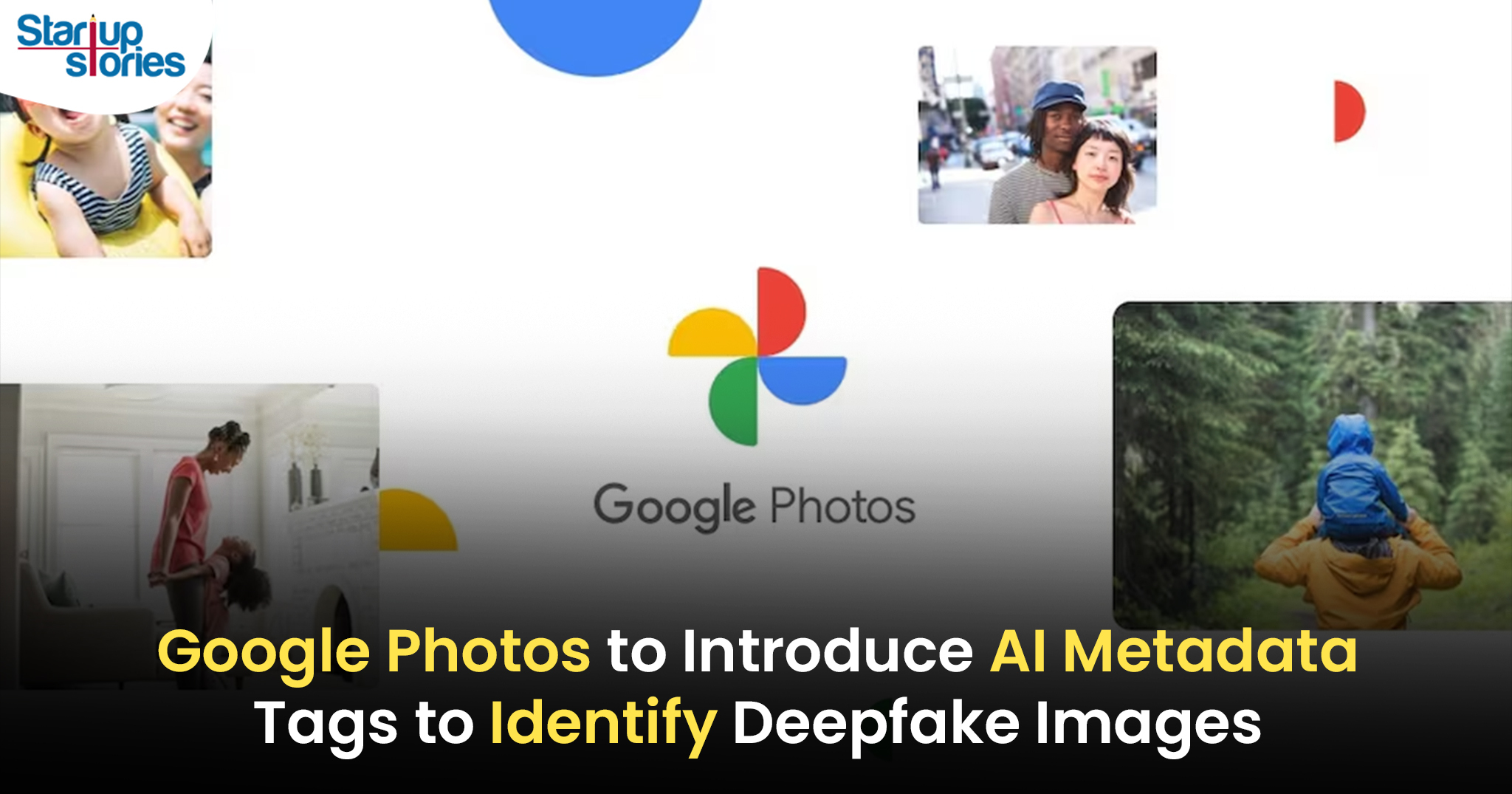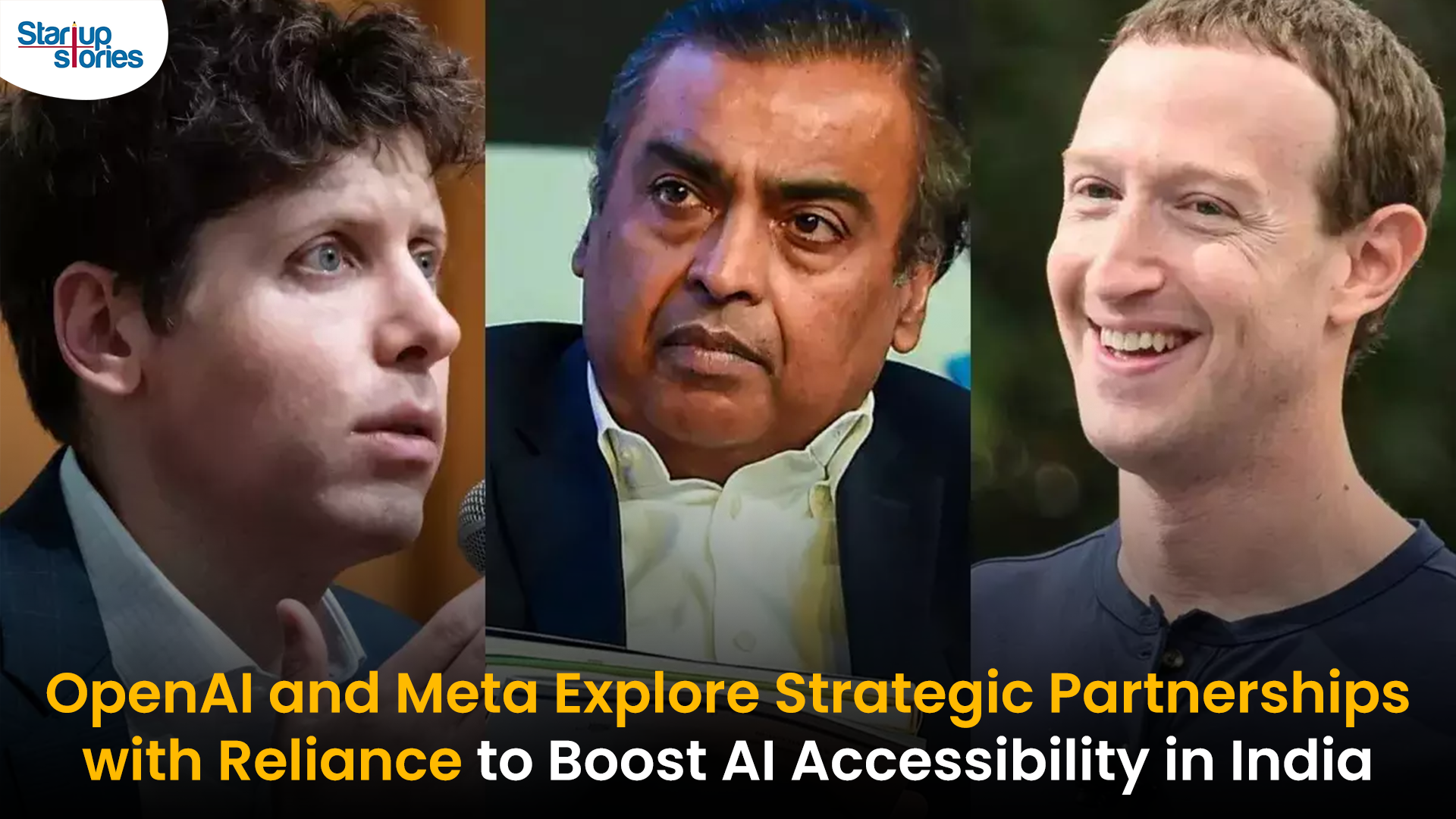Artificial Intelligence
Google Photos May Soon Add AI Attribution to Combat Deepfakes!

Google Photos is reportedly developing a new feature that would allow users to determine whether an image was generated or enhanced using artificial intelligence (AI). This functionality aims to provide transparency and help users identify AI-generated content, potentially reducing the spread of deepfakes and misinformation.
Introduction of AI Attribution
According to recent reports, Google Photos is working on adding ID resource tags that will reveal details about the AI origin of an image, along with the digital source type. However, it remains unclear how exactly this information will be displayed to users. The introduction of such a feature aligns with growing concerns over the proliferation of deepfakes—manipulated media that can mislead viewers and create false narratives.
Tackling Deepfakes
Deepfakes have become a significant issue, as they can be used to spread misinformation or create misleading media. A notable example includes actor Amitabh Bachchan, who filed a lawsuit against a company for running deepfake video ads featuring him without consent. This highlights the urgent need for tools that can help users verify the authenticity of digital content.
How Will This Work?
As per an Android Authority report, the upcoming feature in Google Photos could allow users to verify if an image was digitally generated using AI. While this feature has been found in the layout files of the Google Photos app (version 7.3), it is currently inactive. The app contains strings of XML code suggesting the addition of “ai_info” and “digital_source_type” tags in the metadata, which could help users identify whether an image was created or enhanced by AI tools like Gemini or Midjourney.
Potential Integration with EXIF Data
While details remain unclear, Google could embed this AI attribution information within the Exchangeable Image File Format (EXIF) data of images. However, this might require users to access metadata to view AI-related information, making it less visible. Alternatively, the app might display an on-image badge to clearly indicate that the image was AI-generated or enhanced, similar to how Meta labels manipulated content on platforms like Instagram.
Importance of User Awareness
This feature could prove crucial in increasing user awareness and protecting against the misuse of AI-generated content, especially in light of the rise of deepfakes. By providing clear attribution regarding the origins of images, Google aims to empower users with the information needed to discern genuine content from manipulated media.
Broader Context: Enhancements in User Experience
In addition to this potential feature, Google Photos is also rolling out other enhancements aimed at improving user experience. For instance, recent updates have introduced advanced editing tools powered by AI, allowing users to enhance their photos effortlessly.
Conclusion
The development of AI attribution in Google Photos represents a proactive approach to combating misinformation and enhancing user trust in digital content. As deepfakes become increasingly sophisticated and prevalent, features like these will be essential for maintaining transparency and integrity in online communications. By empowering users with tools to verify content authenticity, Google is taking significant steps toward fostering a safer digital environment.
Artificial Intelligence
Adopt AI Secures $6 Million to Power No-Code AI Agents for Business Automation

Adopt AI, a San Jose and Bengaluru-based agentic AI startup, has raised $6 million in seed funding led by Elevation Capital, with participation from Foster Ventures, Powerhouse Ventures, Darkmode Ventures, and angel investors. The funding will be used to expand the company’s engineering and product teams and to scale enterprise deployments of its automation platform.
Founded by Deepak Anchala, Rahul Bhattacharya, and Anirudh Badam, Adopt AI offers a platform that lets businesses automate workflows and execute complex actions using natural language commands, without needing to rebuild existing systems. Its core products include a no-code Agent Builder, which allows companies to quickly create and deploy AI-driven conversational interfaces, and Agentic Experience, which replaces traditional user interfaces with text-based commands.
The startup’s technology is aimed at SaaS and B2C companies in sectors like banking and healthcare, helping them rapidly integrate intelligent agent capabilities into their applications. Adopt AI’s team includes engineers from Microsoft and Google, with Chief AI Officer Anirudh Badam bringing over a decade of AI experience from Microsoft.
The company has also launched an Early Access Program to let businesses pilot its automation solution and collaborate on new use cases.
Artificial Intelligence
Social Media Platforms Push for AI Labeling to Counter Deepfake Risks

Social media platforms are intensifying efforts to combat the misuse of deepfake technology by advocating for mandatory AI labeling and clearer definitions of synthetic content. Deepfakes, created using advanced artificial intelligence, pose significant threats by enabling the spread of misinformation, particularly in areas like elections, politics, and personal privacy.
Meta’s New Approach
Meta has announced expanded policies to label AI-generated content across Facebook and Instagram. Starting May 2025, “Made with AI” labels will be applied to synthetic media, with additional warnings for high-risk content that could deceive the public. Meta also requires political advertisers to disclose the use of AI in ads related to elections or social issues, aiming to address concerns ahead of key elections in India, the U.S., and Europe.
Industry-Wide Efforts
Other platforms like TikTok and Google have introduced similar rules, requiring deepfake content to be labeled clearly. TikTok has banned deepfakes involving private figures and minors, while the EU has urged platforms to label AI-generated media under its Digital Services Act guidelines.
Challenges Ahead
Despite these measures, detecting all AI-generated content remains difficult due to technological limitations. Experts warn that labeling alone may not fully prevent misinformation campaigns, especially as generative AI tools become more accessible.
Election Implications
With major elections scheduled in 2025, experts fear deepfakes could exacerbate misinformation campaigns, influencing voter perceptions. Social media platforms are under pressure to refine their policies and technologies to ensure transparency while safeguarding free speech.
Artificial Intelligence
Transforming India’s AI Landscape: OpenAI and Meta’s Collaborative Talks with Reliance Industries

OpenAI and Meta Platforms are reportedly in discussions with India’s Reliance Industries to explore potential partnerships aimed at enhancing their artificial intelligence (AI) offerings in the country. This development underscores India’s growing significance in the global AI landscape.
Key Aspects of the Discussions
- Partnership with Reliance Jio: One of the main focuses is a potential collaboration between Reliance Jio and OpenAI to facilitate the distribution of ChatGPT in India. This could enable wider access to advanced AI tools for businesses and consumers, leveraging Reliance’s extensive telecommunications network.
- Subscription Price Reduction: OpenAI is considering reducing the subscription cost for ChatGPT from $20 to a more affordable price, potentially just a few dollars. While it is unclear if this has been discussed with Reliance, such a move could significantly broaden access to AI services for various user demographics, including enterprises and students.
- Infrastructure Development: Reliance has expressed interest in hosting OpenAI’s models locally, ensuring that customer data remains within India. This aligns with data sovereignty regulations and addresses growing concerns about data privacy. A planned three-gigawatt data center in Jamnagar, Gujarat, is expected to serve as a major hub for these AI operations.
Market Implications
These potential partnerships reflect a broader trend among international tech firms aiming to democratize access to AI technologies in India. If successful, they could reshape India’s AI ecosystem and accelerate adoption across various sectors. As negotiations continue, stakeholders are closely monitoring how these alliances may impact India’s technological landscape and its position as a leader in AI innovation.













Crie uma conta gratuita
March 18, 2025 at 12:01 pm
Can you be more specific about the content of your article? After reading it, I still have some doubts. Hope you can help me.
7euph
June 8, 2025 at 12:01 pm
cost generic clomiphene without insurance generic clomid tablets where to get clomid tablets can i get clomiphene without a prescription where can i buy generic clomid tablets can i order generic clomid online where buy cheap clomid tablets
Create Personal Account
September 24, 2025 at 2:42 pm
Your article helped me a lot, is there any more related content? Thanks!
MM88
November 5, 2025 at 9:43 am
Với giao diện mượt mà và ưu đãi hấp dẫn, MM88 là lựa chọn lý tưởng cho các tín đồ giải trí trực tuyến.
J88
November 10, 2025 at 7:03 pm
Đến với J88, bạn sẽ được trải nghiệm dịch vụ cá cược chuyên nghiệp cùng hàng ngàn sự kiện khuyến mãi độc quyền.
站群程序
November 11, 2025 at 12:17 pm
搭载智能站群程序,自动化搭建与管理,为SEO项目提供核心驱动力。站群程序
iwin
November 18, 2025 at 10:19 am
iwin – nền tảng game bài đổi thưởng uy tín, nơi bạn có thể thử vận may và tận hưởng nhiều tựa game hấp
GO88
November 21, 2025 at 5:25 am
Tham gia cộng đồng game thủ tại Go88 để trải nghiệm các trò chơi bài, poker phổ biến nhất hiện nay.
MM88
November 21, 2025 at 9:02 pm
Khám phá thế giới giải trí trực tuyến đỉnh cao tại MM88, nơi mang đến những trải nghiệm cá cược thể thao và casino sống động.
mr bet online casino
December 20, 2025 at 1:39 pm
Unsere übersichtlich gestaltete Website ermöglicht es
Ihnen, einfach und schnell Ihr Lieblingsspiel zu finden.
Wir bieten Online-Slots, Video-Slots, Tischspiele, Rubbellose, Live-Casino-Spiele und noch vieles mehr.
Wir warten mit einer beeindruckenden Anzahl an Spielen auf und freuen uns unsere Auswahl an Online Slots, Tischspielen und Live Casino Spielen zu präsentieren. Auch mit der mobile App ist es möglich, Zahlungen durchzuführen oder die Spiele als Demo zu
spielen. Das Mr Bet Online Casino bietet neuen Spielern einen unvergleichlichen Willkommensbonus, der bis zu 1500€ beträgt und sich über
die ersten vier Einzahlungen erstreckt. Außerdem bieten wir Ihnen einen riesigen Online Casino Willkommensbonus, mit dem Sie
insgesamt 1500€ auf Ihre ersten vier Einzahlungen erhalten können.
Unsere Werbeaktionen sind so konzipiert, dass Sie mit jedem Dreh und jeder Wette mehr
Wert erhalten. Funktionen wie vorzeitige Auszahlungen und Boosts für Kombiwetten sorgen dafür,
dass Sie im Spiel vorne bleiben. Von Wetten vor dem Spiel bis hin zu Live-Wetten finden Sie hier den Nervenkitzel,
den Sie suchen. Egal, ob Sie sich für Fußball, Tennis, Basketball oder Nischensportarten wie Darts oder Cricket interessieren,
wir bieten eine Vielzahl von Wettoptionen, die auf jeden Fan zugeschnitten sind.
Ob Sie ein erfahrener Spieler sind oder gerade erst anfangen, unsere Turniere bieten für
jeden etwas. Starten Sie noch heute Ihre Erkundungstour und
machen Sie Ihren nächsten großen Fang in der Welt des
Online-Glücksspiels!
1Bet bietet mehrere Boni und Promotionen an, um mehr Kunden zu gewinnen. Buchmacher, die
keine Boni und Promotionen anbieten, riskieren,
eine große Kundenliste zu verlieren. Boni und Promotionen sind Teil vieler Online-Sportwettenanbieter.
starz
December 25, 2025 at 3:46 pm
https://t.me/s/Officials_888STARZ
casino industry growth
December 27, 2025 at 2:39 pm
During most of that period Senate Democrats earned a larger share of Senate seats than their share of the national House vote.
James Madison emphasized that the Senate serves as a check against
the potential tyranny of the majority, ensuring that the interests of smaller states
are not drowned out by the more populous ones. By the beginning
of the 21st century, two-thirds of legislatures globally had become unicameral, with the remaining upper houses tending to
become more representative or less powerful; in contrast, the U.S.
Ian Millhiser argues that the points made in favor of the status quo do not hold up since some states vote the same as large states, and that the
current system was just a political compromise to unite 13 sovereign nations after the
Revolutionary War. This disparity in representation between large and small states has increasingly favored
Republicans since the 1960s, with David Wasserman estimating in 2018
that Democrats would need to keep winning the popular vote by more than 6% to maintain control of the Senate.
Nevertheless, presidents have frequently used recess appointments to
circumvent the possibility that the Senate may reject the nominee.
Typically, a nominee is the first subject to a hearing before a Senate committee.
Officials whose appointments require the Senate’s approval include
members of the Cabinet, heads of most federal executive
agencies, ambassadors, justices of the Supreme Court, and other
federal judges. The president can make certain appointments only with the advice and consent of the Senate.
A “hold” is placed when the leader’s office is notified that a senator intends to object to a
request for unanimous consent from the Senate to consider or pass a measure.
The presiding officer sometimes uses the gavel of the Senate to maintain order.
The presiding officer enforces the rules of the Senate, and may warn members who deviate from them.
References:
https://blackcoin.co/players-club-vip-casino/
Spin City account login
December 27, 2025 at 5:23 pm
Let’s say right away that 90% of devices
allow you to gamble in the Casino Mate mobile casino.
The next thing you will need is a device through
which you can gamble in games with HTML5. Nowadays, plenty of Aussies play
on our site from iOS or Android mobile devices.
Today, more and more users prefer visiting casinos from mobile devices.
The most popular among players are blackjack, craps,
roulette, and Texas hold’em. By using secure payment options, customers double the guarantee that the money will be transferred to their
bank account without any hassle. As practice shows, the waiting time for each withdrawal is 0-48
hours, but most often, the more you play slot machines,
the faster the system processes the withdrawal request.
Unfortunately, the site does not have a search bar that would help you find your
favorite games.
References:
https://blackcoin.co/trusted-aussie-online-casinos-licensed-high-paying-picks/